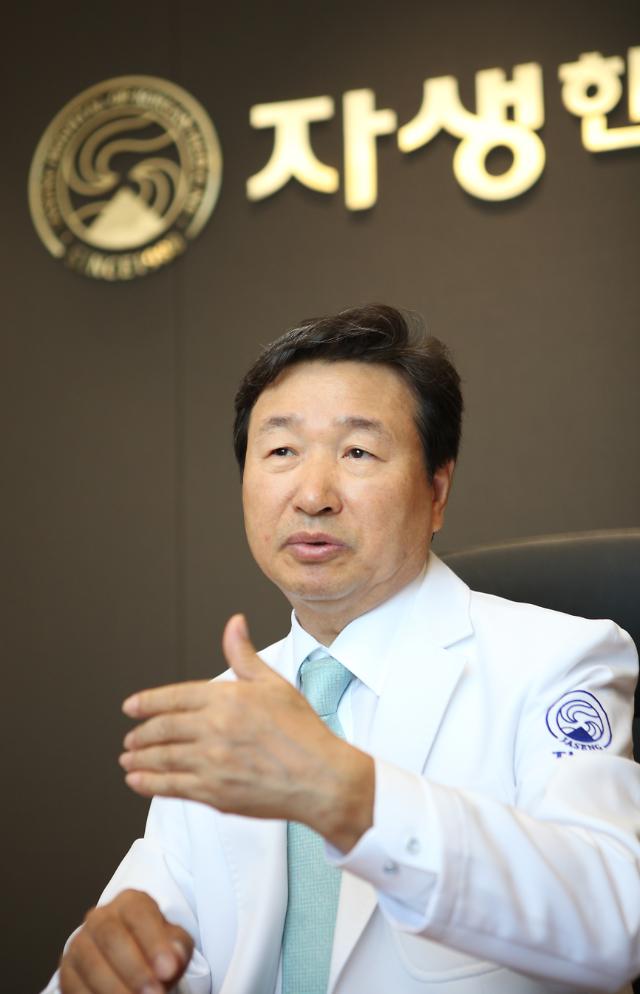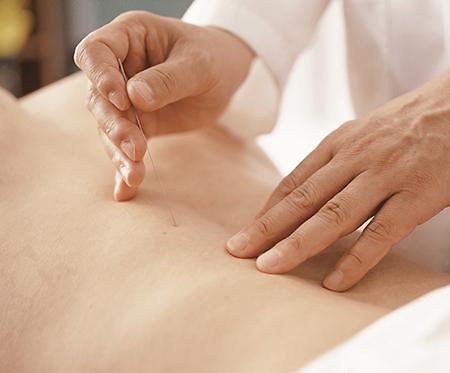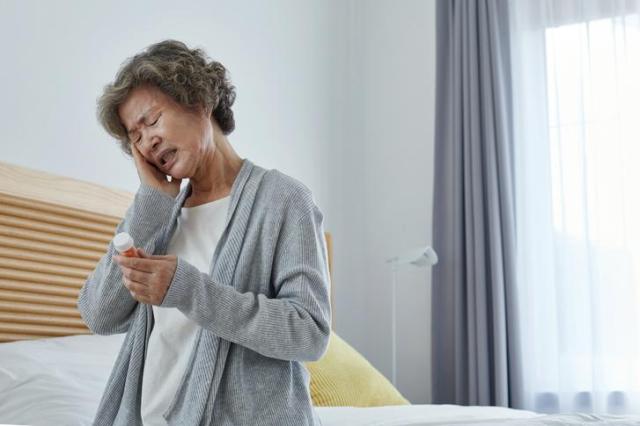
[Courtesy of Jasaeng Medical Foundation]
SEOUL -- Shin Joon-shik, who was decorated as the pioneer in traditional medical treatment of spinal disorders, is confident that non-surgical Oriental herbal therapies may bring a new paradigm in spinal treatment through growing recognition at home and abroad.
"In the field of vertebral therapy in the future, oriental medicine will be evaluated as a foundation for 'integrated medicine', already confirmed in overseas evaluation," Shin, 66, said in an interview with Aju News. He serves as honorary chairman of Jaseng Medical Foundation, a Seoul-based medical group of over 20 hospitals and clinics.
Jaseng treats the cause of spinal disorders without surgery to help bones, nerves, and ligaments to regenerate. Shin thinks that the combination of Western and Oriental medicine can produce more effective spinal treatment to place Oriental medicine in a position equivalent to Western medicine.
Based on prescriptions handed down in his family, Shin set up a clinic in 1990 and established "Chuna" manipulation with strong confidence in his non-surgical treatments, but it took a long time to change a negative public perception about his treatment. Chuna is a technique to restore balance to the body’s musculoskeletal system by applying gentle corrective force to the spine.
"When I started a study about the treatment of spinal disease more than 30 years ago, there were many people who diminished it," he said, adding many people were prejudiced to regard Oriental medicine as "non-objectified and unscientific."
To alleviate social distrust, Shin has carried out numerous scientific tests through clinical trials, focusing on "standardization, scientific development, and globalization" as core values to accumulate objective data on the effects of oriental medicine therapy.
"To inform the world of the unfamiliar medical science, I thought it was the fastest way for foreigners to experience the benefits of herbal medicine treatment," he said. As a result, data on the effects of Chuna therapy on musculoskeletal diseases are now recognized in foreign countries.

[Courtesy of Jasaeng Medical Foundation]
At this year's Osteopathic Medical Conference and Exposition (OMED) in San Diego in October, he will give a lecture on non-surgical treatment to about 7,000 American osteopathy practitioners. Until now, herbal or Oriental medicine has been evaluated as an alternative medicine in the United States. However, Shin hopes that if research results on the therapeutic effect of his treatment are accumulated, Oriental medicine can be equated with Western medicine.
"Overseas medical staff are so much interested in the effect of herbal therapies and receive training in domestic hospitals," he said. "In a couple years, there will be an opportunity that it will develop into integrated medicine by combining with Western medicine."
Chuna therapy has gained popularity with Jaseng treating more than 200,000 patients annually, including 2,000 foreigners. Shin attributed his success to the integration of Oriental and Western therapies for accurate diagnosis and treatment.
"When efforts for standardization and scientific research are accumulated, many people will recognize the excellence of Oriental medicine," Shin said, adding the prejudice against Oriental medicine was in fact caused by doctors who are not eager to scientifically verify the efficacy of herbal medicine.
(This interview was conducted by Lee Jung-soo, an Aju Business Daily reporter.)




